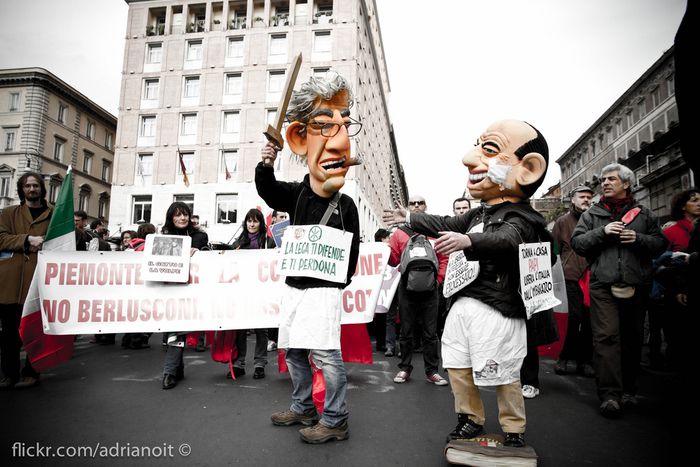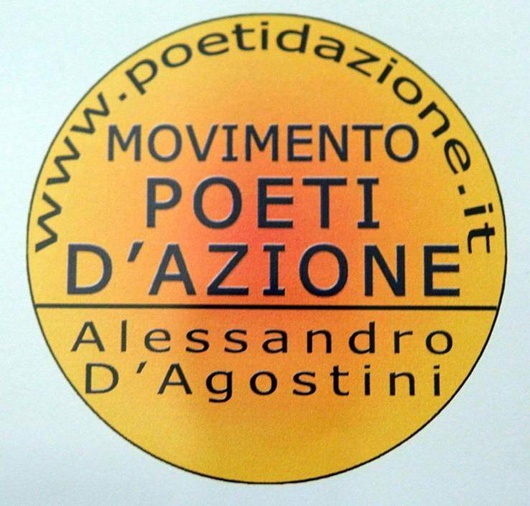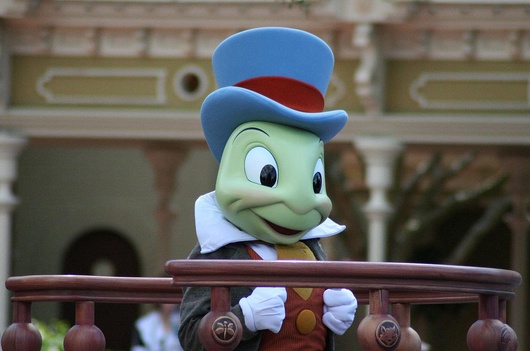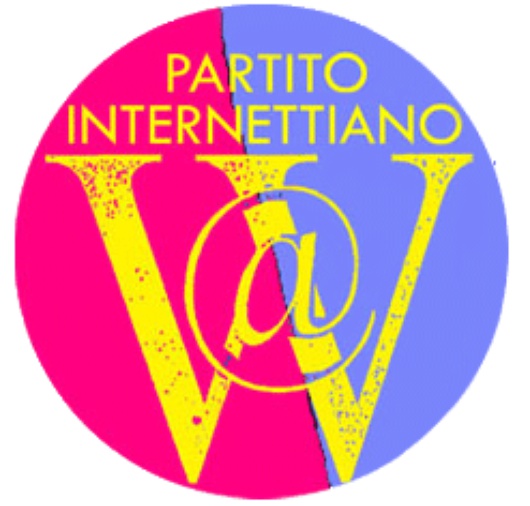
European electoral list 2014: the italian carnival
Published on
Translation by:
Abigail WatsonItaly is preparing for the European Elections on 25th May 2014. On 7th April the electoral list of candidates competing for a position in Brussels was officially announced. Some won't make it all the way, but it doesn’t matter; they’ve already left their mark. Let’s go on a voyage of discovery among the more unusual ones.
80 were admitted in 2009, this time ‘only’ 64 have been announced. We're talking about the lists officially presented at the Viminale Palace for the European Elections on the 25th May. As everybody knows, Italian politics doesn’t do things by halves, and so let’s find out all there is to know by taking a look at the next candidates for an MEP seat in Brussels.
Along with the main political powers, turning up for the event with traditional nomenclature and a few fresh names, there are several new ones ready to leave their mark, not necessarily in terms of votes, but certainly from a symbolic or ‘artistic’ angle. A varied sample of - to put it lightly - bizarre party lists and names artistically adding a dash of colour to the most anti-Europe European elections in history.
Whether it was due to the reduction in the number of signatures required to register on a list, the desire for change or simply Spring, the mosaic of 'new entries' is, to say the least, absurd. Difficult to contact, often lacking telephone details or an email address, or maybe just reluctant when it comes to traditional forms of communication, it can't be said that they lack creativity.
we want the liberal catholic holy roman empire of europe
 Let's start with the Poets of Action movement (Movimento dei Poeti d’Azione). For a few years now, it has been clear that Europe is lacking bite and 'poetic passion', but this party, founded in 1994 by Alessandro D’Agostini, holds up a society where 'poets and artists can become the leaders of a population just as conquerors, kings and revolutionaries once did in history' as a solution for the crisis and austerity society. The new Republic of Plato disembarking at Brussels, just so we understand one another. And if is a publicity stunt, we appreciate it; hectic modern life could do with some rhyming verse, after all.
Let's start with the Poets of Action movement (Movimento dei Poeti d’Azione). For a few years now, it has been clear that Europe is lacking bite and 'poetic passion', but this party, founded in 1994 by Alessandro D’Agostini, holds up a society where 'poets and artists can become the leaders of a population just as conquerors, kings and revolutionaries once did in history' as a solution for the crisis and austerity society. The new Republic of Plato disembarking at Brussels, just so we understand one another. And if is a publicity stunt, we appreciate it; hectic modern life could do with some rhyming verse, after all.
Proceeding further into the gallery of masks we come across the 'Liberal Catholic Holy Roman Empire' (Sacro Romano Impero Liberale Cattolico) from Mirella Cece, who has given a lot of thought to the resurrection of the old Europe of Charlemagne by taking the road leading from Rome to Brussels, (passing through Aachen, the modern-day Aquisgrana). There's also room for Italy's torment, with the list 'Forza Juve-Bunga Bunga Usei', a free association singing the praises of Italy's most popular football team and one of the preferred private 'sports' of a former leader, who is currently making amends with a community service sentence. On its emblem a little figure 'kicking away' the Euro stands out. Nowhere to be found and so declined.
 Beyond creativity, it is not the only anti-europe and original electoral list. In addition to Matteo Salvini's Lega Nord, on whose emblem is written in huge writing 'Basta Euro' ('No to the Euro'), there are other minor lists such as the 'Recupero Maltolto' party (give back the ill-gotten gains), (for some the exact amount of the 'ill-gotten gains' is difficult to quantify) and 'No Euro - Lista del Grillo Parlante' (No to the Euro - List of the Talking Cricket), the nice little animal nudging the conscience of the Italians who have read The Adventures of Pinocchio; that is, all of them. Nothing to do, however, with the Beppe Grillo tribute, although founder Renzo Rabellino attempted 'the electoral name game' once or twice. Someone still remembers when, in the politics of 2008, Giuseppe Grillo and Pericle Barlusconi (that's right, with an 'a') presented as candidates. There's also room for a list which is symbolic, to say the least: 'Chiamiamolo per il Piemonte' (Let's call him for Piedmont). Let's call who? Maybe the 'lamented' Vittorio Emanuele II who unified the Kingdom of Italy?
Beyond creativity, it is not the only anti-europe and original electoral list. In addition to Matteo Salvini's Lega Nord, on whose emblem is written in huge writing 'Basta Euro' ('No to the Euro'), there are other minor lists such as the 'Recupero Maltolto' party (give back the ill-gotten gains), (for some the exact amount of the 'ill-gotten gains' is difficult to quantify) and 'No Euro - Lista del Grillo Parlante' (No to the Euro - List of the Talking Cricket), the nice little animal nudging the conscience of the Italians who have read The Adventures of Pinocchio; that is, all of them. Nothing to do, however, with the Beppe Grillo tribute, although founder Renzo Rabellino attempted 'the electoral name game' once or twice. Someone still remembers when, in the politics of 2008, Giuseppe Grillo and Pericle Barlusconi (that's right, with an 'a') presented as candidates. There's also room for a list which is symbolic, to say the least: 'Chiamiamolo per il Piemonte' (Let's call him for Piedmont). Let's call who? Maybe the 'lamented' Vittorio Emanuele II who unified the Kingdom of Italy?
The old electoral politics marketing strategy for attracting those poor pensioners endures, however. It cannot be denied that the nation with the lowest birth rate in Europe is ageing and that, nowadays, it is anything but a country for young people, but even then, three political formations with they key word 'pensioners' are still too much. From 'Pensionati' ('Pensioners') to 'Pensionati e Invalidi' (Pensioners and the Disabled) up to 'Pensionati consumatori' (Consumer Pensioners). Without a doubt these are the most modern of the group.
No 'fakes' please
 To finish off the painting here is Francesco Miglino's Partito Internettiano (Internet party), unreachable by telephone, quite rightly. The telephone is obselete. Its emblem could not be anything that other than the 'W' of World Wide Web intersected with an @. And the movement places its trust in the 'Great Mother', the 'Net', and the 'resoluteness, the empathy of Internet users', in order to 'break the conspiracies of the current political-financial structure which masters resources, and replace subservient politicans'.
To finish off the painting here is Francesco Miglino's Partito Internettiano (Internet party), unreachable by telephone, quite rightly. The telephone is obselete. Its emblem could not be anything that other than the 'W' of World Wide Web intersected with an @. And the movement places its trust in the 'Great Mother', the 'Net', and the 'resoluteness, the empathy of Internet users', in order to 'break the conspiracies of the current political-financial structure which masters resources, and replace subservient politicans'.
There is even a 'fake', or at least this is how the noble father of the movement, Mariano Ferro from Sicily, has defined it, who has lodged a complaint and claims to be the sole owner of the emblem. It is the 'Forconi' (The Pitchforks), a protest movement which has, in the past, paralysed some Italian regions on more than one occassion. If we had to vote for the 'imagination award', the 'Liberal Catholic Roman Empire' would win without a doubt. This Europe 'worked', in its own way. It is difficult to hold back a smile. At one of its most critical moments, Italy is preparing to meet the most important European elections in the history of the EU as it has always done: With the carefree creativity of the artist.
Translated from Liste Europee 2014: il Carnevale Italiano



